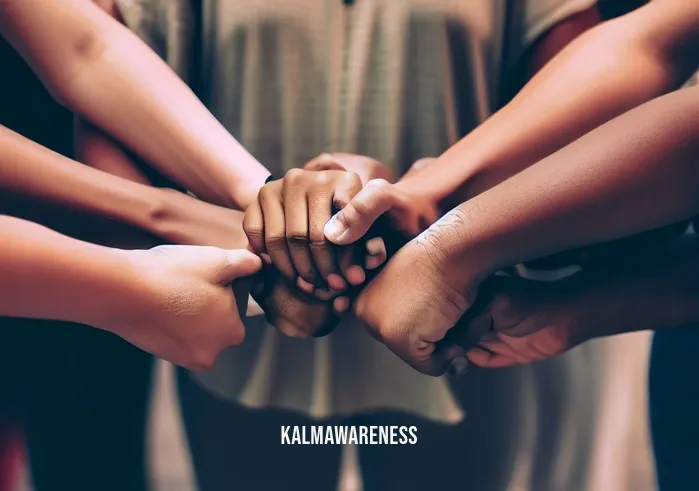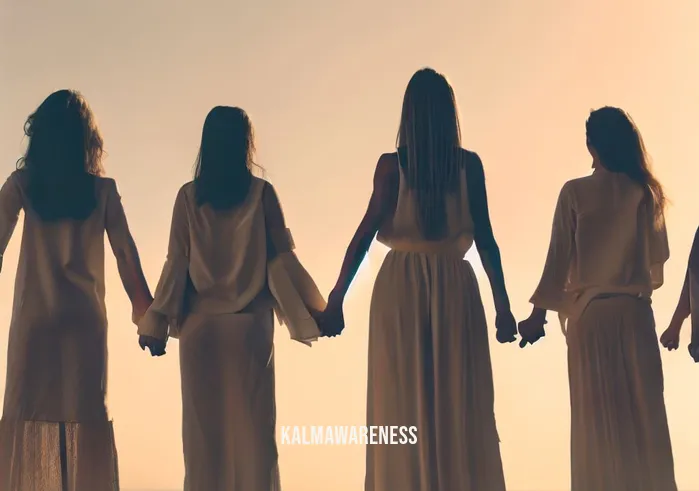The Significance of Black History Month Meditation in Acknowledging Heritage and Culture
The Interconnectedness of Culture and Mindfulness
When it comes to mindfulness and meditation, cultural influences often shape how these practices are approached. There is a vast map of cultures that meditate, each offering its unique perspective on mindfulness and inner peace. While practices like Zen Buddhism may be widely recognized, the meditation techniques that stem from African cultures deserve equal recognition and celebration. This acknowledgment becomes particularly vital during Black History Month—a time to celebrate African heritage and culture. In this context, we delve into the profound subject of Black History Month meditation, a practice that encourages reflection, awareness, and understanding of African history and heritage.
African Heritage in Meditation Techniques
The cultural wealth of African societies has gifted us with unique perspectives and methods in various domains, including mindfulness. Ancient African meditation techniques offer a blend of spirituality, rhythm, and community involvement that distinguish them from Asian or Western practices. The power of communal chants, the rhythm of drums, and the unity of group meditations are part and parcel of African methods. These practices not only foster inner peace but also strengthen community bonds.
“The aspects of unity and community are deeply embedded in African meditation practices. They are not solely individual endeavors but social experiences that enrich community life.”
Celebrating African Heritage Through Mindfulness
When we explore the theme of Black History Month mindfulness, we are essentially immersing ourselves in a rich tapestry of traditions and insights that go beyond the act of closing one’s eyes and focusing on breathing. The month offers an opportunity to engage in activities and discussions that elevate our understanding of the complexities and achievements related to African and African-American experiences. Taking the time to meditate in the context of Black History Month can enrich our perspectives, not just about a specific community but about the interwoven tapestry that makes up our collective human experience. Black History Month Meditation serves as an introspective journey that helps us celebrate African cultural heritage in a unique and impactful way.
The Benefits of Focused Mindfulness
Mindfulness is a practice that benefits everyone, irrespective of culture or ethnicity. Its universal appeal lies in its ability to enhance mental well-being, reduce stress, and improve focus. What’s fascinating is that while the core principles of mindfulness are universal, cultural nuances add layers of complexity and richness to these practices. Studies have explored sociological mindfulness and how it influences our interactions with each other, impacting both individual and community well-being.
Why Black History Month Meditation is Relevant Today
As we acknowledge the contributions and history of the African diaspora, it is essential to recognize the value of mindfulness and meditation practices rooted in African heritage. In a world that is often divided by racial and cultural lines, practices like these can serve as bridges. The teachings of leaders like Martin Luther King Jr. on empathy and community action are more relevant today than ever. Black History Month meditation serves as a medium to internalize these lessons and be actively involved in fostering community and empathy.
In a society where the focus is often on differentiating factors, practices like Black History Month meditation remind us of the shared human experience and the communal wisdom that can be gained from acknowledging and celebrating our diverse histories.
As we proceed to explore how to incorporate this meditative practice into your daily routine, you’ll find that it is a treasure trove of wisdom waiting to be unearthed. Continue reading to discover the practical steps you can take to engage in Black History Month meditation, drawing from the deep well of African heritage and mindfulness practices.
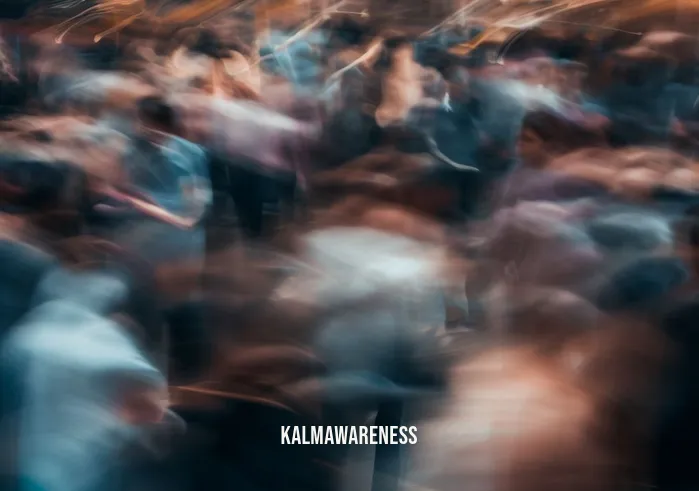
Exploring the Layers: How Black History Month Meditation Amplifies Awareness and Unity
The Significance of Reflective Awareness
Black History Month offers a concentrated period to celebrate, learn, and reflect on African heritage and the African-American experience. However, this reflection can be made even more profound by incorporating meditation and mindfulness into the observance. With the insights derived from things in the past, mindfulness practices can help one connect to history and ancestral roots in a unique, personal way. Engaging in Black History Month meditation is an excellent tool for cultivating awareness and compassion.
Elements of Black History Month Meditation: A Quick Guide
A structured approach to meditation during Black History Month can enhance the experience, and a guide can be helpful for beginners and experts alike. Here’s a quick list of elements that may form part of a typical session:
Intention Setting: Begin with a clear intention related to African heritage or societal unity.
Chants and Affirmations: Utilize meaningful affirmations or chants rooted in African culture.
Focused Breathing: Use breathing techniques inspired by African traditions.
Musical Elements: Incorporate traditional African musical elements, such as drums or flute.
Community Engagement: Consider group meditation for a sense of community and unity.
A Comparative Look at Cultural Meditation Practices
To better appreciate the unique nuances of Black History Month meditation, let’s consider how different cultures approach mindfulness and meditation.
| Culture | Core Elements | Uniqueness |
|---|---|---|
| African | Chants, Drums, Community | Strong emphasis on community engagement |
| Asian (Asian Balls) | Mantras, Silence, Focus Balls | Individualistic and often ritualistic |
| Native American (Michael Yellow Bird Mindfulness) | Nature, Storytelling, Breath | Connection with nature and oral history |
| Russian (Samovar Castro) | Silence, Nature, Teatime | Community-centric, usually around tea |
| Global (7 Happiness Secrets) | Various | A blend of techniques from around the world |
Synthesizing Global Wisdom for Enhanced Well-being
When we view the table above, we can see that all cultures have their own rich histories of mindfulness and meditation. Engaging in Black History Month meditation allows us to learn from a specific culture, synthesizing that wisdom into our well-being strategies. It’s an opportunity to explore another facet of mindfulness that enriches our understanding, thus fitting perfectly within the global efforts to improve mental and emotional health.
Why This Matters Now More Than Ever
In a world where division often makes headlines, focusing on practices that unite us is crucial. Meditation in the context of Black History Month is not just an Afrocentric activity but a universal call for unity and understanding. It provides each of us, regardless of ethnic background, a reason and a way to tap into a rich cultural heritage and foster a sense of shared history and future.
As we move on to delve into practical steps for incorporating this enriching form of meditation into your daily life, know that the journey you’re about to embark on is one of unity, understanding, and most importantly, self-discovery. Continue reading to learn about the step-by-step guide to implementing Black History Month meditation in your daily routine.
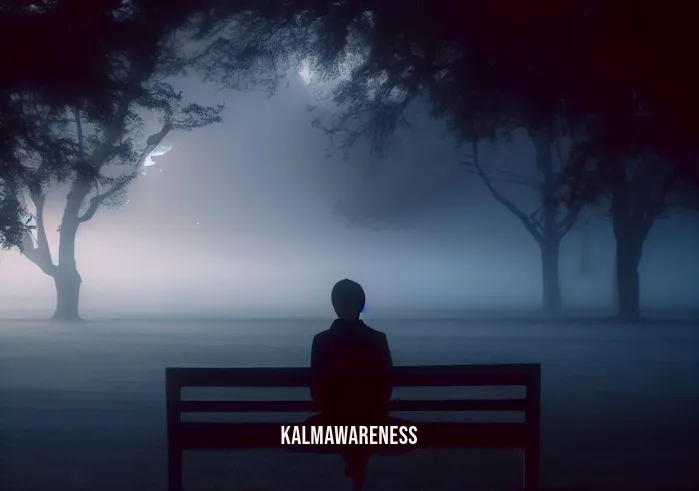
Embracing Resilience and Hope Through Black History Month Meditation
Unearthing Inspiration in the Present Moment
Black History Month Meditation is more than a practice; it’s a journey that inspires hope and resilience. While there are many ways to cultivate mindfulness and self-awareness, focusing on African heritage during this pivotal month adds depth to the practice. This specialized form of mindfulness provides a framework for individuals and communities to come together and celebrate resilience, strength, and shared history, similar to how Martin Luther King Jr. focused on empathy to unite people.
“Darkness cannot drive out darkness; only light can do that. Hate cannot drive out hate; only love can do that.” – Martin Luther King Jr.
Breathing in Hope, Exhaling Despair
The simple act of breathing serves as a powerful anchor in almost all meditation practices, and Black History Month meditation is no different. However, within this framework, each breath becomes a vessel of remembrance, a pause to reflect on the enduring strength of ancestors and the rich tapestry of African culture.
“Breathing in, I calm my body and mind. Breathing out, I smile. Dwelling in the present moment, I know this is the only moment.” – Thich Nhat Hanh
Incorporating breath work inspired by African traditions adds a layer of cultural depth to the practice, transforming it into a source of inspiration and hope.
The Role of Community in Inspiring Change
The community is often seen as a reflection of individual well-being and vice versa, a phenomenon well-explained in sociological mindfulness. And it is within this community that Black History Month meditation finds its fullest expression. The practice becomes a communal act of remembering, a collective inhale and exhale that honors the past while inspiring a more inclusive future.
“It takes a village to raise a child.” – African Proverb
Community-based meditation sessions, particularly during Black History Month, serve as a living, breathing space where stories can be shared, victories celebrated, and future generations inspired.
Uplifting Through Shared Cultural Experiences
The map of cultures that meditate provides a global view of how meditation is perceived and practiced worldwide. While Black History Month meditation focuses on African and African-American heritage, it also provides a window into understanding how cultural history can serve as a source of resilience and inspiration.
“We may encounter many defeats but we must not be defeated.” – Maya Angelou
Charting the Course Forward
As we journey through the facets of Black History Month meditation, we uncover not just a method for mindfulness, but a wellspring of inspiration drawn from a rich cultural reservoir. It serves as a conduit to internalize the lessons of history, the wisdom of ages, and the indomitable spirit of an entire culture. In doing so, it invites us all to be a part of something far greater than ourselves.
As we delve deeper into this intriguing subject in the next chapter, you will learn practical ways to incorporate this enriching practice into your daily routine. Continue reading to unearth the step-by-step guide on implementing Black History Month meditation in your life, connecting the practice with the broader world of 7 happiness secrets from around the world.
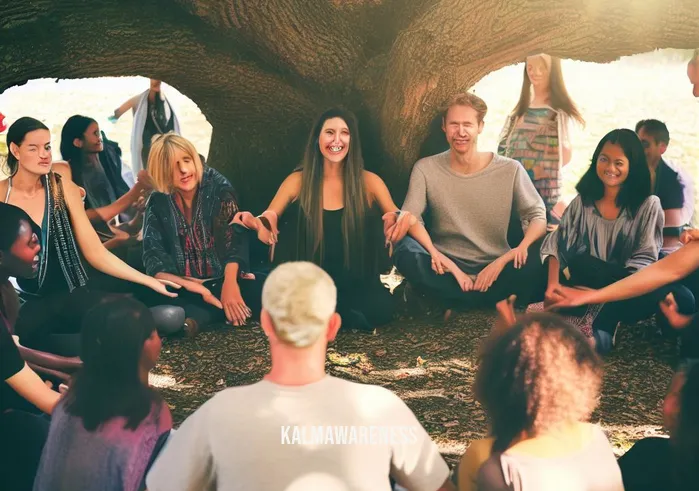
The Blueprint: Unpacking the Elements of Black History Month Meditation
The Rich Tapestry of African Meditation Practices
One of the most compelling aspects of Black History Month meditation is how it encompasses an array of practices deeply rooted in African culture. While we have previously touched on the communal and inspiring aspects of this form of mindfulness, it’s worth diving deeper into ancient African meditation techniques to better appreciate its uniqueness.
An Organized Exploration: The Elements of Black History Month Meditation
A well-structured approach to this special form of mindfulness can make it easier for practitioners to integrate it into their lives. Below is an extensive list detailing various components that can add depth to your Black History Month meditation experience:
Setting the Ambiance
- Colors: Use colors that represent African culture, like red, black, and green.
- Symbols: Introduce culturally significant symbols such as the Ankh or Adinkra symbols.
- Sounds: Drumbeats, flutes, and traditional chants can elevate the atmosphere.
Types of Meditation Techniques
- Ancestral Reverence: Taking time to honor and connect with ancestors.
- Mindful Listening: Using African folk stories or songs to focus the mind.
- Affirmative Chanting: Using phrases or affirmations rooted in African culture.
The Phases of the Meditation Session
- Preliminary Phase: Set intentions and prepare the meditative space.
- Engagement Phase: Engage in specific meditation techniques.
- Deepening Phase: Enter into deeper states of meditation.
- Closure Phase: Reflect, offer gratitude, and slowly emerge from the meditative state.
Bonus Tips for an Effective Session
- Pair your practice with herbal teas, reminiscent of the Russian Samovar tradition highlighted in Samovar Castro, for a calming effect.
- Incorporate a social justice angle, aligning with Martin Luther King Jr.’s focus on empathy, to make your session more meaningful.
How to Integrate Black History Month Mindfulness into Daily Life
Adopting this enriched form of mindfulness doesn’t need to be confined to a single month; you can incorporate elements into your daily routine. As observed in Black History Month Mindfulness, there are strategies to make this part of your regular meditation practice. They include:
- Daily Affirmations: Choose a meaningful quote or phrase connected to African heritage.
- Mini-Sessions: Short, 5-10 minute sessions focused on cultural elements can be quite impactful.
- Mindful Reading: Include African literature or poetry as part of your daily mindfulness practice.
The Next Chapter: Unveiling the Art of Mindful Reflection
The journey thus far has laid the groundwork, providing you with the tools and insights needed to integrate Black History Month meditation into your life fully. While you now have a comprehensive blueprint, it’s essential to know how to apply this knowledge practically and reflect upon its impact.
In the final chapter, we’ll delve into the art of mindful reflection. We will explore how this practice can not only help you understand your internal landscape but also offer a way to contribute positively to the broader narrative surrounding African heritage and culture. Your anticipation for these revelations will undoubtedly enrich the concluding chapter of this enlightening exploration. So, continue reading to discover the ultimate guide to mastering the transformative practice of Black History Month meditation.
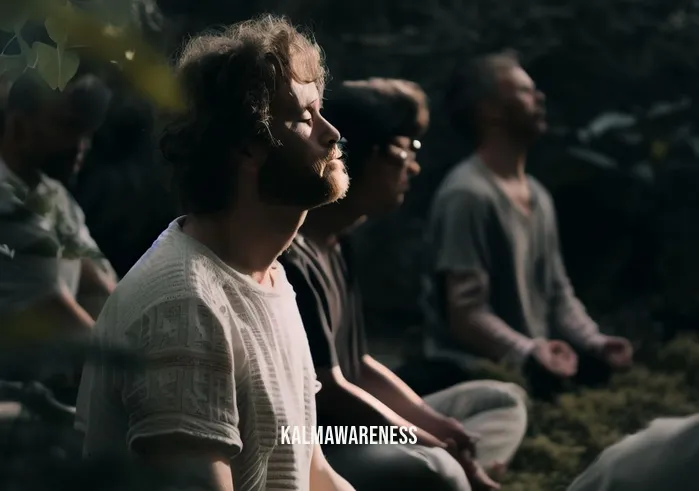
The Final Stretch: Reflecting on the Journey of Black History Month Meditation
A Sense of Completion, Yet an Invitation for Continuity
We’ve traversed an enlightening path, exploring the various facets of Black History Month meditation. From diving into ancient African practices to building a practical blueprint for your meditation sessions, this has indeed been a journey worth its weight in wisdom and heritage. But as the old saying goes, “The best way to honor the past is to shape the future,” and it is with this spirit that we must continue to delve into cultural mindfulness, much like Michael Yellow Bird’s work in mindfulness emphasizes.
What We’ve Learned
We’ve unraveled the deep ties of this meditation form to African heritage, making us realize that meditation isn’t a one-size-fits-all practice but a tapestry of techniques steeped in diverse cultural soils. We also learned how these practices are not just month-long affairs but lifelong commitments that can enrich our daily existence.
The Importance of Being Mindful of Our Roots
As seen in the broader scope of sociological mindfulness, the practice isn’t just about individual peace; it’s also a social tool for engendering community harmony. Just as Black History Month meditation serves as an avenue for individual spiritual growth, it also offers a social function of strengthening cultural ties and fostering a deeper understanding of heritage.
Beyond Black History Month
Remember, while the emphasis here has been on Black History Month, the mindfulness techniques and cultural appreciation do not have to be limited to February. Feel free to revisit the chapters for a refresher or deeper understanding. And if you’ve developed an appetite for uncovering happiness techniques from various cultures, 7 happiness secrets from around the world would be a great next read.
Your Next Steps
- Review the Chapters: Go back and re-read any sections that particularly resonated with you.
- Practice: The best way to internalize this knowledge is through consistent practice.
- Engage: Share your experiences and learnings with the community. Your insights could be the beacon someone else is seeking.
A Parting Note and Invitation
Thank you for being an integral part of this enlightening journey. Your curiosity and engagement make our work worthwhile, and we assure you that future editions will continue to provide you with enriching and diverse perspectives on topics ranging from cultural heritage to mindfulness and beyond.
As we close this chapter, we invite you to explore things in the past and contemplate how they connect to your current mindfulness practice. It’s a delightful way to be in tune with the essence of our historical narrative while marching forward into a future filled with mindful potentials.
With gratitude, we invite you to keep breathing, keep exploring, and above all, keep meditating.
The journey may have reached a pause, but the road ahead is long and fulfilling. We’ll meet again in future chapters of this ongoing story. For now, let this be your newfound beginning in the enriching world of Black History Month meditation.
